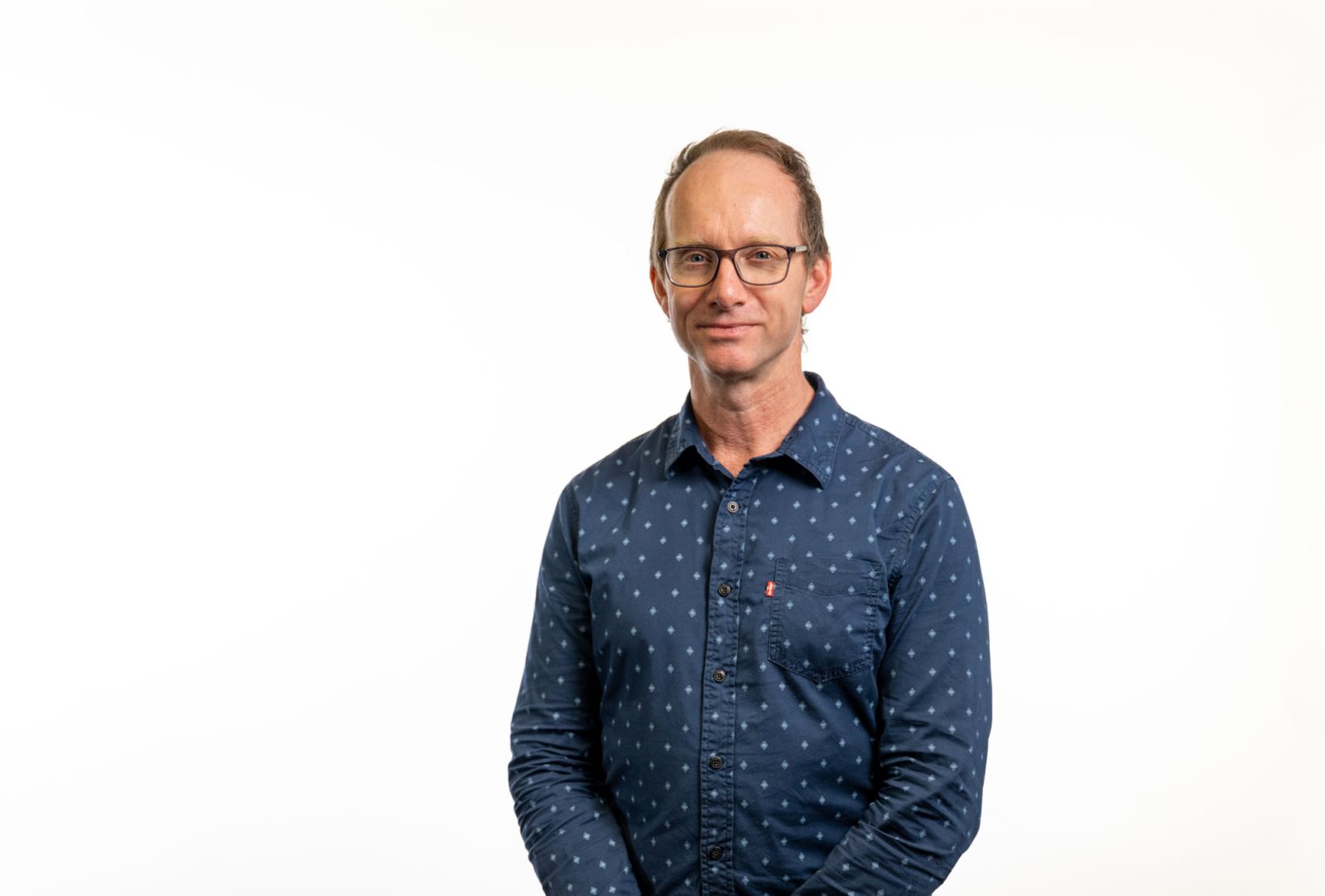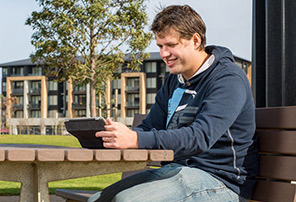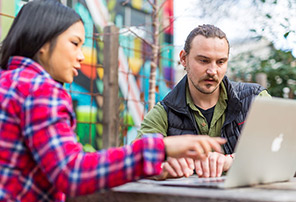You're viewing degree information for Australian students
You're an Australian student if you are any of the following:
- Australian or New Zealand citizen
- Australian Permanent Resident (including Permanent Humanitarian Visa holders)
Please remember your residency (the country you are currently in) has no impact on whether you are an Australian or International student.
Bachelor of Health Science (Healthy Ageing)
Degree Level Undergraduate
Year 2025
-
View full entry requirements Hide full entry requirements
Entry requirements
Admission criteria
The admission criteria have been grouped to assist you to easily find the information most relevant to your circumstances. However, you may fit into more than one and the university will consider applicants against each of the relevant criteria.
Certain conditions apply. For more information refer to Appendix 4 of the University's Selection and Entry policy.
Applicants are required to meet one of the following criteria with a competitive result:
Higher education study
* successfully completed equivalent to a minimum of half a year of full-time study of a higher education program at a recognised higher education provider
OR
Vocational Education and Training (VET)
* completed an award from a registered training organisation at Certificate IV level or above
OR
Work and life experience
* passed a UniSA Online literacy and numeracy test and have relevant work experience;
* completed a 12-month UniSA Foundation Studies program or equivalent; or
* qualified for Special Entry
OR
Recent secondary education
* completed a secondary education qualification equivalent to SACE, such as an interstate year 12 international qualification with a competitive selection rank (ATAR)
Essential requirements for admission
Prerequisites
NoneAssumed Knowledge
None
Degree overview
- Study a degree that has been developed in response to Australia’s ageing population and the increased demand it’s creating in the health care and social assistance sector.
- Explore the personal, structural, and social factors that influence the health and wellbeing of our ageing population.
- Examine ageing and disability-friendly environments, Aboriginal Australian health inequalities, and existing government and social policies that promote healthy ageing.
- Uncover the current issues, opportunities and adaptations required in our health systems and services.
- Gain the skills to develop strategies and solutions to tackle growing challenges in the health sector.
- Join a university ranked in the top 5 in Australia for graduate careers in health.1
1Ranked #3, ComparED (QILT) Graduate Outcomes Survey 2020-22, Rehabilitation – Overall Employment Indicator (Domestic Undergraduate). Public universities.
Snapshot

Study On Demand – a 100% online healthy ageing degree designed specifically for online learning. Take full control over your study – access support seven days a week, plan your study to fit around your life, view learning resources 24/7, and log into the interactive online environment anywhere, any time and on any device.
UniSA Online’s Healthy Ageing degree explores a range of factors that influence our health and wellbeing as we grow older. Learn how communities, organisations, and governments are responding to the challenges and opportunities of an ageing population.
In Australia, the number of people aged 65 and older is projected to exceed the number of children aged 14 and younger by 20301. This demographic change has an impact on almost all aspects of society, from the health workforce, long-term care, and housing to labour and financial markets, education, and social support. Your understanding of the factors that influence healthy ageing will position you well in your health career.
In this degree, you’ll study core courses offered in the Bachelor of Health Science before moving on to your Healthy Ageing specialisation from the second year. Discover what age-friendly environments and landscapes look like, learn about the role of nutrition and food as we grow older, explore personal, structural, and social factors that influence lifestyle choices, and analyse factors that influence workforce participation by older people. You’ll also analyse current international and national policy perspectives in this field.
This healthy ageing degree is perfect those who are already working in the health sector and looking to expand their knowledge and skills to help our ageing population live healthier, more independent lives. It’s also a great option for those looking to enter the health sector for the first time.
1 Australian Demographic Statistics, June 2019, Australian Bureau of Statistics.
What you'll learn

A solid foundation of health science knowledge is extremely important no matter where your career takes you. Fascinated by the human body? Learn about muscles, nerves, bone structure and major blood vessels including the function of muscle groups of the limbs, spine trunk and thorax. Discover how body systems work together as well as how the body responds physiologically to disease. Understand the role of food and nutrition for good health and how a healthy diet can reduce the risk of age-related chronic disease.
The ageing of the population will have far-reaching implications for society. Key challenges for the health system include changing health profiles, increased demand for health services, and rising health costs. UniSA Online’s healthy ageing degree explores current issues, as well as the opportunities and adaptations required in our health systems and services when it comes to promoting health and wellbeing in older people.
Our exposure to health risks, such as air pollution or violence, and our access to quality health and social care are all influenced by the environments in which we live. You’ll learn about age-friendly designs in the home, the workplace, urban spaces, recreation facilities, and on public transport.
Social connections have a major impact on everyone, no matter their age. Maintaining relationships and spending time with others is essential to our mental health and wellbeing. You’ll learn about the health benefits of social networks, the impact it has on reducing loneliness, as well as evidence-based strategies and technology-based interventions to strengthen social networks in the human services.
Australian Aboriginals are ageing at a much faster rate than the non-Indigenous population. Explore the reasons why Aboriginal Australians have higher rates of age-related diseases, higher rates of dementia and lower life expectancies. The knowledge you gain will allow you to truly make a difference in your community. You’ll learn to develop strategies and solutions to help solve these issues, enhance healthy ageing in Aboriginal Australians, and directly impact the people and communities around you.
Population ageing is expected to increase the absolute number of people with disabilities, simply because disability becomes more common with age. Your courses will examine the Disability Discrimination Act, legal rights of redress, elder abuse, media representations of disability and ageing, and related violence against the aged and those with disabilities.
Your health sciences degree will equip you with a transferable skillset that you’ll be able to apply in a wide variety of cross-disciplinary and multi-disciplinary roles in the health sector. A practical case management course in your final year ensures you graduate with up-to-date knowledge of the aged care and support industries.
Why Bachelor of Health Science (Healthy Ageing)

Join a university ranked in the top 5 in Australia for graduate careers in health.1
Healthy ageing has become a central focus on the global stage. The World Health Organisation (WHO) and the United Nations declared 2021-2030 the Decade of Healthy Ageing. Closer to home, state governments and local councils are also developing action plans to promote health and wellbeing in older people. If you are passionate about improving the lives of others and their families and communities, this degree is the perfect fit.
UniSA Online’s Healthy Ageing degree has been developed in response to Australia’s ageing population and the increased demand it’s created in the health care and social assistance sector. This degree instils the professional skills and knowledge required to prepare you for a future career in an increasingly complex and ever-changing health landscape.
UniSA is rated as a top 5 young university in Australia for research quality,2 and this excellence shines through our teaching. We are inspired by challenges and opportunities, and partner with local icons and international organisations to deliver impact and change. Our teachers have a very practical approach to learning, and as a result, you’ll work on real-world projects and gain direct hands-on experience.
1Ranked #3, ComparED (QILT) Graduate Outcomes Survey 2020-22, Rehabilitation – Overall Employment Indicator (Domestic Undergraduate). Public universities.
2Ranked #4, 2023 THE Young University Rankings.
Your career
Strong employment growth is predicted for the health care and social assistance industries, with 23% growth (equating to about 250,000 new jobs) expected by 20231.
With royal commissions underway into the aged care industry and disability sector, it’s anticipated that the implementation of recommendations arising from these royal commissions will contribute further to growth in jobs, particularly in non-clinical roles including policy and compliance.
-
Healthy ageing policy analyst: Analyse healthy ageing policies and their effects on government and organisation programs and operations; implement and oversee research and analysis projects; develop strategies and proposals on policy development in designated reform areas; draft policy positions and statements; consult with relevant advisory groups, government officials and other key stakeholders; and collate and present project findings, data and policy positions in papers and reports.
-
Healthy ageing project officer: Build the capacity of community organisations to undertake community development initiatives that support healthy ageing; create supportive environments that enhance participation opportunities for older people; develop resources that support healthy ageing in communities; build relationships with key service providers and community groups in local areas; consult older adults, health services and community organisations to identify community needs and opportunities.
-
Active and healthy ageing adviser: Review and build on evidence-based strategies to improve the health and wellbeing of older people; develop networks to improve organisational and workforce capacity to promote health and wellbeing; understand the determinants of healthy ageing including healthy lifestyle factors and age-friendly environments; and provide support and education through online training, workshops and resources to help organisations and staff take a healthy ageing approach.
-
Health and welfare services officer: Coordinate the professional and administrative aspects of health and welfare programs and services; develop and implement policies and standards for medical, nursing, allied health and administrative staff; coordinate and administer health and welfare programs and clinical services; liaise with other health and welfare providers, boards and funding bodies; and advise government bodies about measures to improve health and welfare services and facilities.
-
Community program developer: Research, plan and implement programs and activities that promote and increase participation of older people in communities; build networks and develop partnerships with community organisations to achieve positive outcomes for the local community, and work with people from diverse backgrounds and supervise and develop staff and volunteers.
-
Aboriginal health officer: Deliver high quality, comprehensive and culturally appropriate health care services in urban, regional, rural, and remote locations across Australia; develop tailored educational resources and training for community organisations and non-Aboriginal organisations; advocate for culturally respectful and needs-based approaches to improving health and wellbeing outcomes for Aboriginal and Torres Strait Islander people.
-
Health promotion officer: Plan and develop policies, strategies and projects that promote health at a local, regional, or national level; develop the health awareness of individuals, groups, and organisations; run community training courses and workshops; write and produce leaflets, posters, videos and brochures to aid health promotion in different environments; and ensure work is underpinned by up-to-date knowledge of health promotion theory.
-
Healthy ageing coordinator: Lead strategic action plans in healthy ageing, wellness, and inclusiveness for older people; ensure services are provided in a safe environment; engage with internal and external stakeholders; identify trends and contribute to proposals of healthy ageing services; monitor and evaluate the effectiveness of services provided; and coordinate volunteer-led initiatives that promote healthy ageing and independence of older people.
1https://www.nationalskillscommission.gov.au/insights/health-care-and-social-assistance-industry-analysis.
Thinking of studying soon?
Industry facts
Your study experience and support
Study On Demand
Our online career-focused degrees give you full control and ultimate flexibility over your study. It’s Study On Demand, on your schedule, on your terms.
- Study 100% online - no need to come onto campus
- Choose from four start dates in January, April, June and September
- Learn in 10-week blocks
- Get support seven days a week - including on weeknights
- Access learning resources 24/7
- View course content before your term starts
- Work while you study
- Plan your study schedule ahead of time
- Fast-track your studies and receive credit for past study and/or work experience.
IT Requirements
As a general rule of thumb, any desktop or laptop computer purchased in the past three years should be capable of meeting your online learning needs. While mobile devices such as tablets and smartphones will be able to access most of your online course content, there are likely to be elements of most courses where we recommend you use a desktop or laptop computer. Your computer should be able to:
- run a modern browser (Microsoft Edge, Firefox 24, Safari 5, or Chrome 32 or later versions)
- run Java
- run programs to create documents, spreadsheets and presentations
- use a web camera and headset (or ear pods with microphone)
- Some UniSA Online degrees require an online exam. The online exam software – Remote Proctor Now – has specific capability requirements. Please refer to the system requirements prior to conducting your exam to ensure your computer is compatible.
Access free IT software and resources
As a UniSA Online student, you'll:
- Get free access to the full Office 365 ProPlus suite, which includes full versions of Word, PowerPoint, Excel, Outlook, OneNote, Publisher, Access and Lync software. Install the full suite on up to five different devices (PC and Mac compatible).
- Get 1Tb of personal storage that syncs with your PC or mobile device through OneDrive - it's like an extra hard drive that allows you to open any of your files from any of your devices, whenever you need them.
- Get free access to LinkedIn Learning - Access more than 5000 video courses on a broad range of topics such as: the Microsoft Office suite, time management and study skills, health and wellbeing, communication and presentation skills, photography, film making and designing your own games or mobile apps.
- Be able to connect with others using Microsoft Teams, Yammer and the Outlook Web App.
There are some degrees that have specialised software requirements. We've made this software available to students to access for free - you'll be able to download and install any of the required programs on your own device anywhere and anytime. See if your degree requires specialised software.
Check your device
Our computer system test will determine if your device has the base system resources and software required to study online. It'll also check the speed of your internet connection.
See if your computer, laptop or device is all set up and ready to go – it takes just a few seconds.
The application process is easy – just follow these simple steps:
-
Check your eligibility
Take our eligibility checker and answer a few short questions to see if you’re eligible. You’ll be given an option to continue your application, save it for later or request a call back from a Degree Adviser if you have any questions. -
Gather your relevant documents
If you're eligible, you'll receive an email outlining the entry requirements and the relevant documentation you need in order to be considered.
In order to verify your academic qualifications, you'll need to upload relevant documents like your official parchment, certificates or transcripts. If you have work experience, you will need to upload your CV as well as any other documents like work references, professional recognition or accreditation or your training certification.
Your email will contain information on the specific documents you need to provide as well as a link to log in to your application. You'll be asked to create an account and set your own password. -
Complete your application and send through your documents
In order to proceed with your conditional offer, you’ll need to complete your application and provide required evidence of your previous study or work experience.
Alternative Pathways
- UniSA College Diploma in Health (Allied Health and Human Performance)
- UniSA College Undergraduate Certificate in University Studies (Health)
- UniSA Online UniStart
-
When should I apply?
UniSA Online degrees start four times a year in January, April, June and September. There are key application dates for each term. If you're looking to apply for credit, there are different closing dates you need to be aware of, so it's always best to double check. Key dates can be found at unisaonline.edu.au/key-dates.
-
Do I have to be online at set times?
All of our courses are asynchronous, meaning you choose when to study, whenever it suits you. However, if your degree has online exams, you will need to sit these at a designated date and time. Some courses may also require you to speak to your academics via phone or online communication channels at a mutually agreed time as part of your assessment.
-
What academic support is available?
Our academics are available seven days a week, including weeknights. Throughout your degree, you’ll be supported by our highly experienced academic team of Online Course Facilitators and casual academics. Our teaching team will guide you through your learning and ensure you have an outstanding, high-quality education.
They can help you with your course materials and assessments, provide feedback on your work, assist you with referencing, and can answer any other course-specific queries.
You’ll be able to contact your academics via email, online discussion forums and live messages in the online learning environment. You can also communicate in real-time and chat face-to-face with your academics online.
If you need after-hours learning support, Studiosity is a great resource that can help you with your writing, academic language, grammar and referencing. You’ll also be able to chat online with a Studiosity online adviser.
-
How is my degree structured?
Full-time students study two courses each term. It makes earning a degree completely achievable, especially if you’re working. Your degree is delivered over four terms each year. Each term runs for ten weeks with two-week breaks in between each term.
You’ll also have the option to go part-time, or switch between the two. If you need to take a break in your study, that’s an option too. We recommend speaking to your Student Adviser who can help you update your study plan and check when your courses are offered.
-
What career prospects do I have with my university qualification?
Our degrees are designed in conjunction with industry experts, employers and professional associations, and informed by the latest developments in your field. You will graduate with in demand skills and up-to-date knowledge required by industry.
You will be studying with a university known for its employment outcomes. Your UniSA degree is more than just a piece of paper – it will prepare you to start your career, or take it to the next level. UniSA's online students have graduate employment rates well above the national average.*
UniSA Online qualifications follow the same Government Higher Education Standards Framework as our on-campus degrees. The parchment you receive at the end of your degree will be the same as any other University of South Australia student.
*UniSA External UG full-time employment rate 83% Graduate Outcomes Survey 2018
-
What are the main differences between online, on-campus and distance education?
The knowledge you gain from each mode of study is the same – it's how you get there that's different. When you study online, everything from your course material to weekly activities and assessments are fully online. You'll communicate with academic staff and students via live messages, online discussion forums and email.
Studying on campus requires students to physically come on to campus at specific times to attend lectures, tutorials and practicals. On-campus students have face-to-face contact with academics and fellow students and also communicate via email and online discussion boards.
Distance Education involves physical course material packages being sent to students, usually print based but occasionally audio or video. Communication is usually via telephone, mail and email. In today’s digital era, distance education has been superseded by online education.
More FAQs







